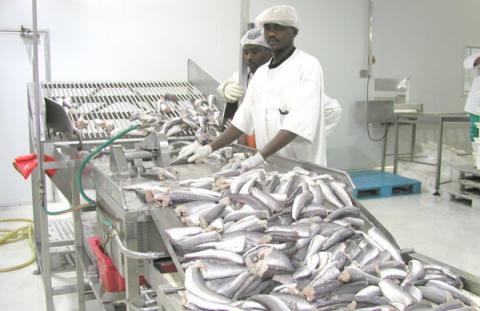Following plans by the Federal Government to ban the importation of fish in the county, a group has cautioned government on taking such decision, saying there is shortage of fish in Nigeria.
The group, Nigeria Trawler Owners Association (NITOA), said that with an estimated population of 174 million people by 2015, the demand for fish would increase to 2.1 million metric tonnes (mt) and with an estimated production of 740,000 mt, there would a shortfall of demand by 1.4million mt.
They said any further reduction in fish supply would cause the price of fish to increase and directly affect Nigerians who depend on imported fish for animal protein to feed their families.
A press release issued by the information officer of the association Manny Philipson said: “The argument of exporting jobs abroad for what we can produce locally does not arise as, domestically, we cannot match the affordability, quantity, Omega 3 healthy oils, or taste that imported pelagic fish provides.
“Rather than resorting to protectionism; we should encourage free trade, that is, support our local fishing industry to export more Nigerian prawns and use those export earnings to import cheaper, more abundant pelagic fish species.”
They said “banning the import of frozen fish would not enable Nigeria save N97 billion in foreign exchange as the quantum of fishmeal and soybean import required to produce 700,000 metric tonnes of catfish would cost us even more, between N103 to N143 billion.”
They association urged the Federal Government to resist calls by catfish farmers to reduce fish import via quotas, or to protect catfish farmers by increasing duties on fish.
“Applying quotas is always a challenge as there is an inherent problem in deciding who will get what quota, which may not necessarily be fair.
“While every patriotic Nigerian wants catfish farmers to succeed, their success does not require a reduction in fish import, which is likely to impact all Nigerians.”
They urged the government to consider the alternative of providing assistance in the provision of subsidised fish meal and soya bean meal, as is done with fertilizer for farmers, under the Growth Enhancement Support scheme (GES).
“The lowering of fishmeal and soybean meal costs that account for 60per cent of fish feed expenses would make catfish and tilapia more competitive and could make them affordable to a larger proportion of Nigerians.”
The release maintained that additional burden on fish importers, either by way of duty increase or quota re duction would likely go against government’s policy of single digit inflation, as well as ECOWAS and WTO guidelines on free trade.
Copyright Ships & Ports Ltd. Permission to use quotations from this article is granted subject to appropriate credit given to www.shipsandports.com.ng as the source.

